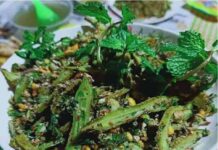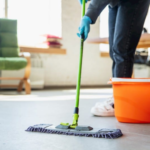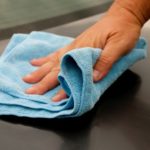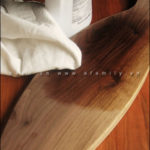Recently, a member of a household appliance group shared a photo of their juicer filled with plastic. The owner believed that the sapodilla fruit had plastic in it, and when pressed, the plastic secreted and stuck to the machine, making it difficult to clean.
Several users on the group shared their own experiences and thoughts:
“Sapodilla should be eaten directly instead of being pressed. Even when ripe, it still contains a lot of plastic.”
“When I first heard of sapodilla juice, I thought it was only used in smoothies.”
“Cleaning this plastic is such a hassle.”
“Soft fruits like this should be grated instead of being pressed.”
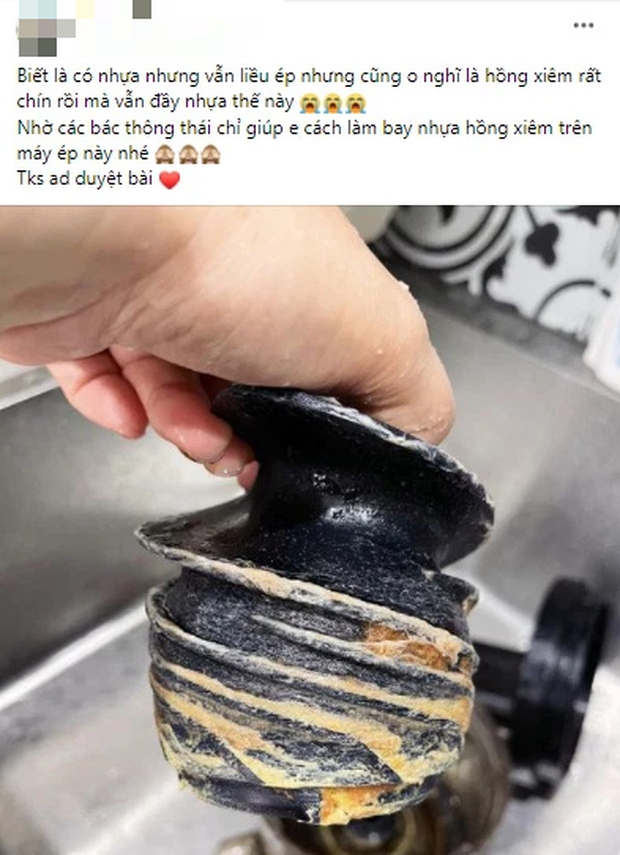
The juicer filled with sapodilla resin. (Photo from a group for dishwasher and appliance users)
In reality, not all fruits are suitable for juicing. Sapodilla, banana, jackfruit, turmeric, and chayote are known to have a high content of plastic, which easily sticks to utensils or clothes during processing.
Plastic is a thick, liquid chemical naturally found in some plants or fruits. Over time, it hardens into a transparent solid. The sticking of plastic during processing poses a headache for many housewives when it comes to cleaning.
Here are some simple tips for removing plastic residue using common ingredients:
1. Cleaning with Cooking Oil
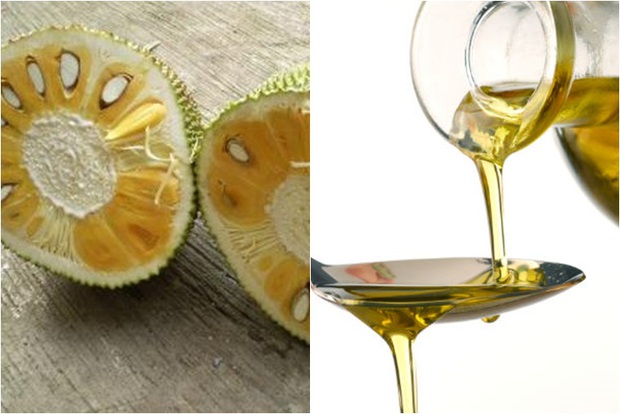
Cooking oil can effectively remove plastic stains, especially jackfruit resin. (Illustration)
Simply apply a small amount of cooking oil to the sticky residue, allow it to sit for a while, then vigorously wipe it off with a tissue or towel. Rinse with clean water to complete the cleaning process. The oil will soften the plastic residue, making it easier to remove.
This method is particularly effective for removing jackfruit resin.
2. Cleaning with Lemon
Lemon, with its acidic properties, is highly effective in removing dirt and stains.
To remove plastic residue from objects, use a lemon or half a lemon depending on the extent of the residue. Rub the lemon continuously on the affected area with a towel or sponge. The acidity of the lemon helps dissolve stubborn plastic stains.
For plastic stains on clothes, after scrubbing with lemon, apply laundry detergent and continue rubbing. Then wash the garment as usual to remove the stains.
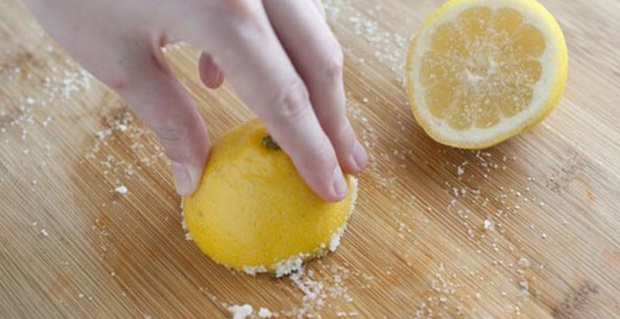
Lemon is an effective method for removing resin stains from various fruits. (Illustration)
3. Cleaning with Salt and Wine
A combination of salt and wine is effective for removing plastic stains from clothes, particularly sapodilla stains.
Sprinkle a little salt on the wine and use it to wash the stains. The alcohol and acid in the wine, along with the sodium chloride in the salt, work together to treat stubborn stains. Finally, wash the garment with regular detergent.
4. Cleaning with Vinegar
Vinegar is a popular cleaning agent used by many households.
For example, if banana residue sticks to clothes, causing dark, dull stains, pour vinegar directly onto the stain and let it soak for 5-7 minutes. Then wash the garment as usual to remove the stain.
For long-lasting stains, soak the affected area with vinegar for about 30 minutes. However, deeply set stains may be more challenging to remove and may only fade instead of being completely eliminated. Therefore, it is advised to tackle the stains promptly instead of leaving them for a prolonged period.
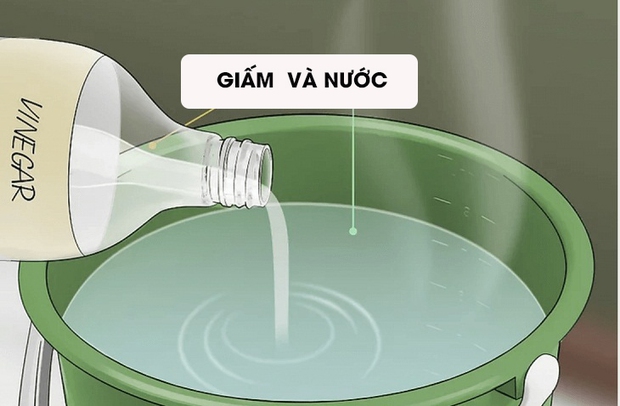
Vinegar is a commonly used cleaning agent. (Illustration)
Water spinach is another type of plant that contains resin. If water spinach becomes sticky, prepare a basin of water, add a little vinegar and a few drops of lemon juice, then soak and wash your hands with the solution. The combination of vinegar and lemon will effectively remove plastic stains.
Synthetic



















